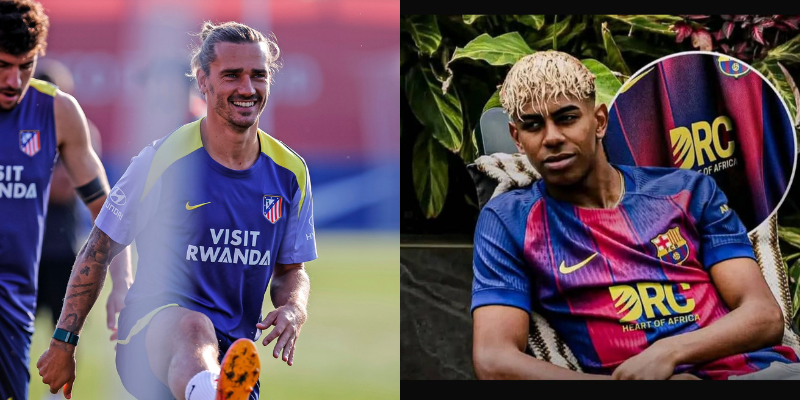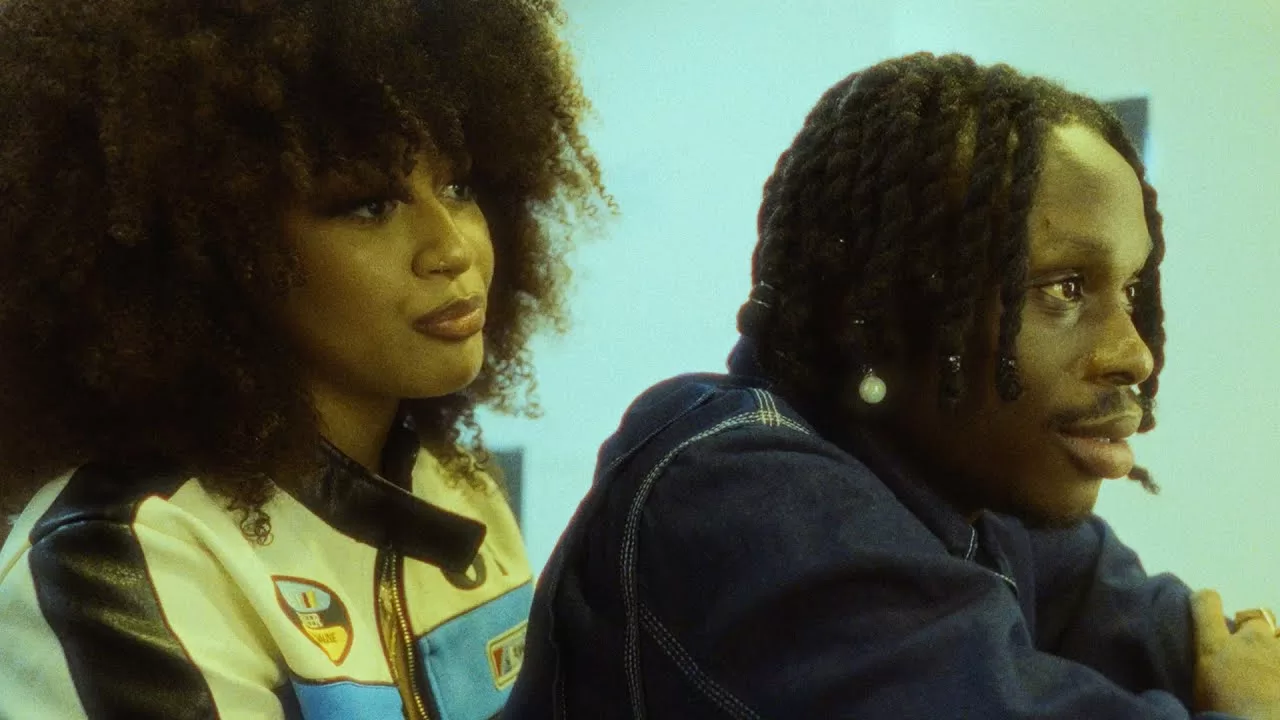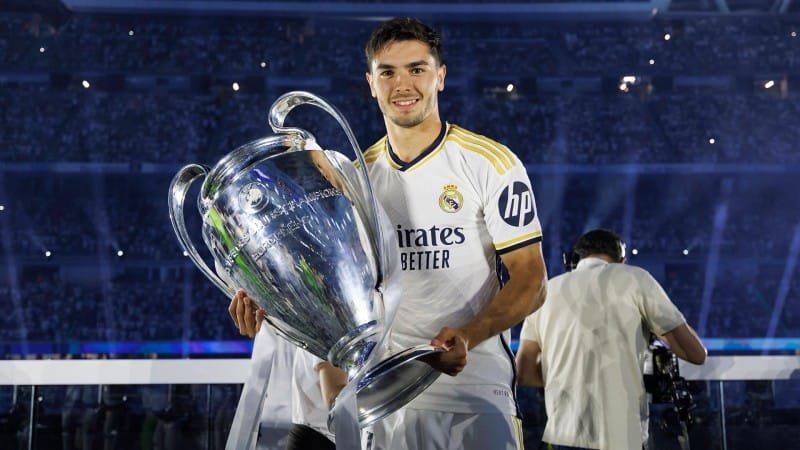African nations, such as the Democratic Republic of the Congo (DRC) and Rwanda, have increasingly turned to high-profile sponsorship deals with European football clubs to boost tourism and enhance their global image.
The DRC has secured deals with FC Barcelona ($51 million), AC Milan, and AS Monaco to promote its “Heart of Africa” brand. Rwanda’s “Visit Rwanda” campaign has partnered with Arsenal (£10 million annually), Paris Saint-Germain, Bayern Munich (recently shifted to football development), and Atlético Madrid.
While these deals aim to showcase the natural beauty, wildlife, and cultural heritage of these nations, the hefty financial outlay on such PR stunts is often a misallocation of resources for countries grappling with pressing domestic challenges.
Millions spent, little to show
The DRC and Rwanda are investing millions in these partnerships, with the DRC’s FC Barcelona deal alone costing $51 million and Rwanda’s Arsenal sponsorship exceeding $12 million annually. For countries with significant economic constraints—the DRC ranks among the world’s poorest nations with a GDP per capita of around $600, and Rwanda, while growing, still faces poverty rates of over 38%—these sums are staggering. Such funds could instead address critical needs like healthcare, education, or infrastructure. For instance, $51 million could build dozens of schools or health clinics in the DRC, directly benefiting local communities in tangible ways.
Proponents argue that football sponsorships generate tourism revenue and improve global perceptions. However, the evidence supporting this claim is shaky. Rwanda’s tourism sector has grown, contributing $620 million in 2019, but it’s unclear how much of this growth can be directly attributed to its Arsenal or PSG deals, as opposed to organic development or other marketing efforts. The DRC, facing ongoing security issues and a lack of robust tourism infrastructure, is even less likely to see immediate returns from such partnerships. A logo on a football jersey may spark curiosity, but potential visitors might still hesitate when confronted with travel advisories, limited facilities, and unstable conditions.
Studies on sports sponsorships often show increased brand visibility but rarely provide concrete data linking such visibility to significant increases in tourist arrivals or measurable economic impact. This makes the deals appear more about prestige than tangible results.
Prestige over practicality
While no country is without its flaws—and these flaws should not completely deter nations from promoting themselves—it is nonetheless more urgent to address internal challenges before spending heavily on PR campaigns that advertise the country without fixing the issues that might deter visitors. It’s like treating a serious illness by spending money on an advertising campaign rather than on medical care. The return on investment for such sponsorships is likely to be low. Yes, a “Visit Rwanda” campaign might embed the country’s name in the minds of football fans worldwide, but the most powerful PR is still word-of-mouth.
VISIT RWANDA emblazoned.
— Ellen Kampire (@ellen_kampire_) August 5, 2025
Levels. pic.twitter.com/mfUOSkln7S
A visitor who experiences good roads, reliable utilities, quality services, and warm hospitality will naturally become an ambassador for the country, telling others about their positive experiences. Rwanda and the DRC would do well to focus on building infrastructure, improving amenities, and ensuring safety. This will create the type of organic promotion money cannot buy. Don’t get me wrong—both Rwanda and the DRC have stunning natural attractions worth visiting. But are these hefty promotional fees a better investment right now than large-scale improvements in infrastructure? I don’t think so.
Soft power’s hidden weaknesses
The allure of global exposure through football clubs is undeniable, but it sidesteps the root issues hindering tourism in these countries. The DRC struggles with political instability, ongoing conflict in the east, and inadequate transport networks—factors that discourage visitors far more than a lack of brand awareness ever could. Rwanda, despite its progress, still faces challenges in scaling its tourism infrastructure to match established African destinations like Kenya or South Africa. Investing in domestic tourism capacity—better roads, airports, hotels, and safety measures—would almost certainly deliver more sustainable returns than flashy PR campaigns.
Advocates of these sponsorship deals often cite “soft power” benefits, claiming they enhance a country’s global image. Rwanda’s partnerships, for example, aim to position it as a forward-thinking African success story. Yet this narrative is easily overshadowed by controversy. Rwanda’s Bayern Munich deal, for example, drew backlash from DRC fans over regional tensions, forcing the agreement to be rebranded as a development partnership.
DR Congo has signed a $46 million sponsorship deal with Barcelona to promote tourism in the country.
— Africa Facts Zone (@AfricaFactsZone) July 22, 2025
Barcelona will featured the slogan "DRC, the heart of Africa" on their shirt sleeves.
The country also signed sponsorship deals with AS Monaco and AC Milan. pic.twitter.com/erp8Pf35Pf
Moreover, soft power is a long-term strategy that depends on consistent governance, transparency, and stability—areas where both the DRC and Rwanda face persistent criticism. Spending millions on football clubs while domestic issues such as poverty, unemployment, or human rights concerns remain unresolved can even backfire, leading to accusations of whitewashing and undermining the intended PR gains.
A smarter route to tourism growth
African nations would be better served by redirecting these funds into targeted, cost-effective tourism strategies. Digital marketing offers a far broader reach at a fraction of the cost. Rwanda, for instance, could use social media to showcase its gorilla trekking experiences, cultural festivals, and eco-tourism sites directly to potential visitors. Investments in local tourism businesses, professional training for guides, and preservation of natural treasures like the DRC’s Virunga National Park would create jobs, protect the environment, and yield long-term benefits.
Collaborative regional initiatives could further amplify results. Imagine an East African tourism circuit combining Rwanda’s wildlife experiences, the DRC’s rainforests, Uganda’s cultural heritage, and Kenya’s safari offerings—marketed jointly to attract long-haul visitors. Such initiatives would boost the entire region without requiring individual countries to pour millions into European sports sponsorships.
The bottom line
While the glamour and visibility of European football partnerships are tempting, the DRC and Rwanda’s massive spending on PR through these deals is a questionable use of scarce resources. With limited evidence of direct tourism benefits and urgent domestic needs competing for attention, these investments risk prioritising optics over substance.
African nations would be far better off building strong tourism foundations from within—roads, airports, safety, hospitality training, and visitor experiences that inspire word-of-mouth advocacy. That way, every tourism dollar spent yields measurable benefits for citizens, not just fleeting moments on a football pitch.
















